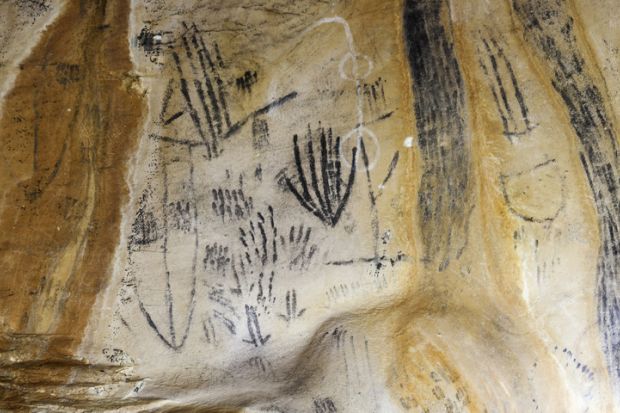Indigenous customs dismissed by Westerners as curious cultural practices should be reconceived as research integrity measures, a human rights lawyer turned academic has argued.
Mark McMillan, professor of indigenous education and engagement at RMIT University in Melbourne, said systems of integrity and ethics have persisted in Australia “since time immemorial”.
In a keynote address to the World Conference on Research Integrity in Hong Kong, he said Western research could benefit from integrity concepts practised in Australia for tens of thousands of years.
Professor McMillan, who is RMIT’s deputy pro vice-chancellor and the only indigenous Australian chair of an academic board, said he wanted to bring a “different perspective” to discussions about research integrity. Often deemed “romantic” and primitive, traditional practices had helped sustain societies and their knowledge, he told Times Higher Education.
He cited an example from the Wiradjuri nation of New South Wales, where he claims heritage. “The idea is that not everybody needs to know everything, but when everybody knows their bit, the system is whole,” he said.
“It’s not just a matter of secret men’s business or secret women’s business. Those things allowed for integrity of systems to exist.”
Another example concerned the “knowledge holders” of the Kulin nation in central Victoria. “They don’t all share the same knowledge; they’re just known as having knowledge.
“With that status you’ve got the ability to pass it on [to people] of your choosing. So, who do you want to bring into your peer review process? You start to think about these things as practices rather than historic cultural remnants.”
Professor McMillan said indigenous Australia’s complex approach to clans and kinship, with its “very strict relationship requirements”, was often seen as a cultural curiosity.
“In fact, it’s a scientific practice built up over a hundred thousand years of genetics,” he said. “That system needed the integrity of understanding who you were related to.”
Equally important was a territorial approach where borders were a “shared space” with surrounding nations. “There was always cross-boundary adoptions, marriages – an integrity framework [so] that you didn’t keep repopulating from within.”
Professor McMillan said it was time to talk about how “multiple knowledge systems” could co-exist, without one absorbing the other, given new obligations on the research community to embrace indigenous perspectives.
The Australian Code for the Responsible Conduct of Research, which was revised last year, stresses the right of indigenous people to be involved in research and mandates respect for their “diversity, heritage, knowledge, cultural property and connection to land”.
Professor McMillan said the discussion he envisaged would be the next step in an evolution which had started in the 1980s, with acknowledgment that Aboriginal people should not be subjected to research without their consent, and progressed to a “rights-based” insistence on their active participation. “We’re ready to move to the next level,” he said.
His comments coincide with demands for better recognition of indigenous research in the Australian and New Zealand Standard Research Classification, which is under review. Groups representing indigenous students, postgraduates and innovative research universities want Aboriginal and Torres Strait Islander research awarded its own four-digit classification – something it currently lacks – so that indigenous research is readily identified in funding decisions and assessment exercises.
Professor McMillan said such a move would be an “important signal of maturity. Māori have a four-digit code,” he noted.
Register to continue
Why register?
- Registration is free and only takes a moment
- Once registered, you can read 3 articles a month
- Sign up for our newsletter
Subscribe
Or subscribe for unlimited access to:
- Unlimited access to news, views, insights & reviews
- Digital editions
- Digital access to THE’s university and college rankings analysis
Already registered or a current subscriber? Login









